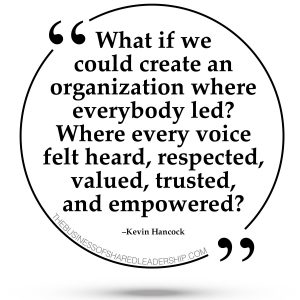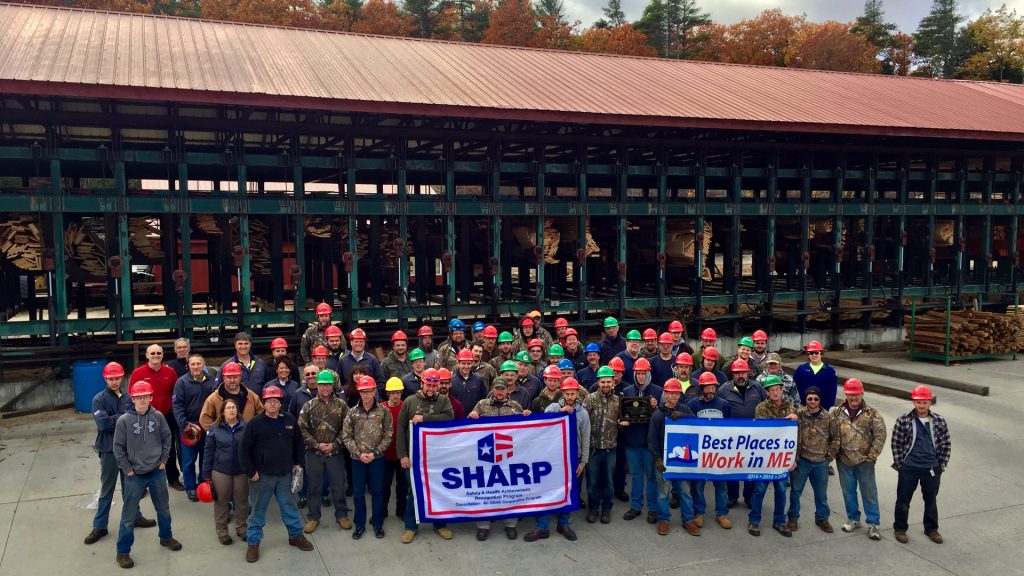2021 IDEA-SHARING ADVENTURE SERIES BY KEVIN HANCOCK
“Every writer I know has trouble writing.”
—Joseph Heller
I often have to write for a while before it becomes clear to me what I am writing about.
This is contrary to what I was taught in middle-school English class. “You must know the end of the essay in order to write the beginning,” my teachers told me.
But life isn’t always that tidy. Sometimes you’ve just got to pick up the pen and start writing in order for the spirit within you to manifest and flow forth.
* * *
 This is the tenth essay of my weekly series, and it occurs to me that enticing CEOs to broaden their mission, expand their roles, and see their companies in a fresh light is one of the core aspirations of my writing this year.
This is the tenth essay of my weekly series, and it occurs to me that enticing CEOs to broaden their mission, expand their roles, and see their companies in a fresh light is one of the core aspirations of my writing this year.
Mike Hall, one of many great leaders at Hancock Lumber, where I work, is fond of telling me that my most valuable role is actually “Chief Evangelist,” not “Chief Executive.”
An evangelist is someone who seeks to convert. An evangelist understands the power and potential of an idea.
In that sense, Mike is right. My passion is learning to see the world of work, commerce, and free enterprise through fresh eyes—for what my alma mater, Bowdoin College, calls “the common good.”
I recently participated in a statewide leadership program on racial equity here in Maine.
“Why are you here?” one of the facilitators asked each of us at the opening session.
“I’m here because the purpose of any company should be to advance humanity,” I replied when my turn came. “Whatever confronts and challenges humanity must also manifest as priorities in our businesses.”
I hadn’t premeditated that answer. It just came out.
There are approximately 195,000 CEOs in America. Together they influence the values and cultural expectations for 155 million US workers and a $25 trillion economy. Imagine the potential social impact of those CEOs all embracing the belief that their highest calling is to advance humanity by serving the people right in front of them, the employees who give all companies life.
Old-school business thinking once urged CEOs to stick to their knitting and focus on the narrow core of their corporate mission. In our case that would be making lumber and facilitating logistics. Make no mistake: In order for our company to have a platform for doing good, we must be world-class at making lumber, and be fanatics about OTIF (“On time and in full delivery”). But that doesn’t mean lumber and delivery trucks represent our highest purpose. Our highest purpose is to create meaningful and empowering work experiences for those who choose to dedicate a piece of their lives to our company, as employees. The first priority of our company is the people who work there.
Where in society are adults going to grow and self-actualize? It has to be their place of work, because that’s where most adults congregate.
From a business standpoint, the twenty-first century is about flipping the script on the core purpose of capitalism. When the mission reorients and elevates, the potential for good expands. Humanity doesn’t need less capitalism; it needs more. But the kind it needs must be reimagined. Employees don’t exist to serve companies; companies exist to serve employees. When this shift occurs, employee loyalty, creativity, commitment, and capacity are unleashed. Business performance accelerates on the wings of service to others.
This doesn’t mean the end of accountability, best practices, core systems, or organizational focus. In fact, when companies serve their employees, all of these elements are strengthened. As our safety director Gregg Speed is fond of saying, “People support what they help to create.”

The purpose of safety within a company is a great example of this required shift in thinking. A company does not pursue safety to save money or avoid OSHA. A company pursues safety because its core mission is to be meaningful and valuable to the people who work there. Helping everyone stay healthy and safe is fundamental to any company’s raison d’être.
Change is created first within us, then beside us, and finally beyond us. When CEOs change what they see as their highest purpose, organizational transformation follows.
CEOs have the opportunity to release a veritable wave of human capacity, machinery, and capital toward the common good. Business is no different than life. When you commit to serving others, you are repaid with more than you give.
My personal mission as the CEO of Hancock Lumber is to create a corporate culture where everyone feels trusted, respected, valued, and heard. Creating that culture will improve business performance, but those results are the outcome of a higher calling. That higher calling is sharing leadership broadly and respecting all voices in a manner that helps every human within the organization to self-actualize and tap into the sacred power that dwells within us all. Advancing humanity, one human at a time, is the new business of business.
Setting that course is the CEO’s role.
“Human progress is neither automatic nor inevitable.”
—Martin Luther King
* * *
Thank you for considering my thoughts. In return I honor yours. Every voice matters. Between our differences lies our future.
____________________